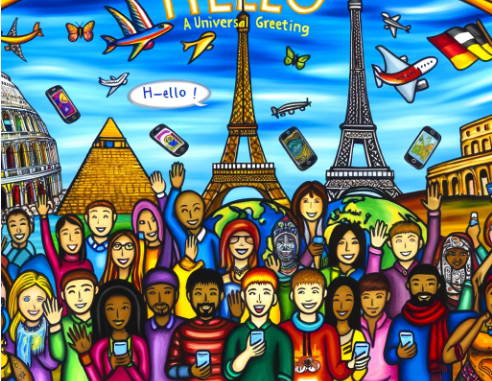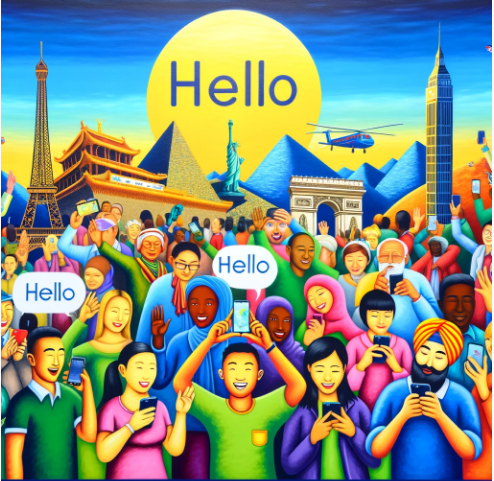
ADVERTISEMENT
The widespread use of the word “hello” as a greeting is a fascinating blend of historical, technological, and cultural developments that have collectively shaped its global adoption. Here’s a detailed look into how “hello” became a universally recognized word for greeting:

Historical Origins
- Etymology: The word “hello” has its roots in the Old High German word “hal,” which means to fetch or to call. Over centuries, this evolved into various forms, such as “holla,” “hollo,” and eventually “hello.”
- Early Usage: Originally, “hello” was used more as an expression of surprise or to attract attention than as a greeting.
Technological Influence
- The Telephone: The most significant boost to the word’s popularity came with the invention of the telephone by Alexander Graham Bell in the late 19th century. There’s a popular belief that Thomas Edison suggested using “hello” as a way to answer the telephone, which was more assertive and attention-grabbing than the initially suggested “ahoy” by Bell. This practical use case made “hello” a staple in telecommunication.
- Spread Through Technology: As the telephone became a common fixture in households and businesses around the world, the use of “hello” spread with it, transcending its initial English-speaking contexts.
Cultural Spread
- Globalization: The 20th century saw unprecedented levels of globalization, with English emerging as a dominant international language. The global spread of English through colonialism, international business, media, and the internet further cemented “hello” in various cultures.
- Media and Entertainment: Hollywood and the American music industry, in particular, have had a significant influence on popularizing English slang and phrases globally. The frequent use of “hello” in songs, movies, and TV shows has contributed to its global recognition.
Modern Usage
- Universal Greeting: Today, “hello” is recognized and used in various forms around the world, not only in English-speaking countries but also as a common greeting in non-English speaking regions where people might use “hello” when answering the phone or in casual, informal settings.
- Language Learning: As one of the first words taught in English language courses, “hello” is often one of the few English words that non-English speakers may know, further reinforcing its ubiquity as a greeting.
Conclusion
The word “hello” embodies how a simple form of communication can evolve and spread across the globe through a combination of technological innovation, historical usage, and cultural exchange. Its story is a testament to the interconnectedness of human societies and the ways in which language evolves and adapts across time and space.
ADVERTISEMENT
That’s very informative, interesting and fascinating article. Thanks
This was information that is good to know!!
HELLO YES YES YES ♧◇
I’d like to become an actor , maybe even like mine rolebin some film in the near future best regards , you know for who
Yes when I traveled in Europe Hello was a Welcome Word ! Martha
Very educative I think it’s a good way to make kids to learn early History and more, thank you very much
BLESSINGS